Artificial Intelligence (AI) is rapidly transforming the world of education, and teachers are at the forefront of this technological revolution. AI tools are increasingly becoming indispensable in the modern classroom, offering innovative solutions to streamline administrative tasks, provide personalized learning experiences, and enhance teaching and assessment methods. This comprehensive guide will explore the best AI tools for teachers, including an introduction to each tool, its pricing structure, and a thorough examination of its pros and cons.
The role of teachers is evolving in response to the digitization of education. Teachers face challenges and opportunities as traditional classrooms give way to virtual and hybrid learning environments. AI tools for teachers offer innovative solutions that can enhance the teaching and learning experience in numerous ways.
This article will delve into the most valuable AI tools for teachers, providing an in-depth analysis of their functionalities and how they can empower educators. For each tool, we will examine the pricing structure, the pros that make it a valuable asset, and the cons that may pose challenges in certain contexts.
8 Best AI Tools for Teachers
1. Nearpod
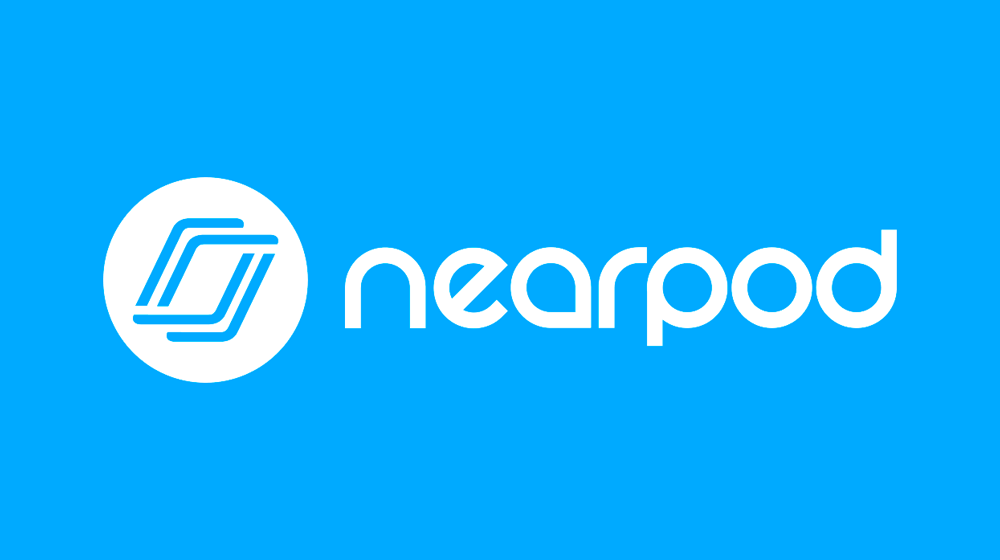 Nearpod is an interactive classroom tool that empowers teachers to engage students with interactive lessons, assessments, and real-time analytics. It offers a vast library of pre-made lessons, or educators can create their interactive content.
Nearpod is an interactive classroom tool that empowers teachers to engage students with interactive lessons, assessments, and real-time analytics. It offers a vast library of pre-made lessons, or educators can create their interactive content.
Pricing:
Nearpod offers several pricing options, including a free version with basic features. Paid plans, such as Nearpod Gold, start at $120 per year for a single teacher and offer additional features, including access to the Nearpod library, real-time student feedback, and more. School or district-wide plans are available for custom pricing.
Pros:
- Engaging Lessons: Nearpod’s interactive lessons keep students engaged and allow teachers to monitor student progress in real time.
- Content Library: Access to a library of pre-made lessons can save educators time in lesson planning.
- Assessment and Feedback: The platform provides tools for creating quizzes and surveys, allowing teachers to assess student understanding effectively.
Cons:
- Cost: While a free version is available, the premium features come at a cost that may be a consideration for budget-conscious educators or schools.
- Learning Curve: Some teachers may find it takes time to become proficient in creating interactive lessons.
Website: Here.
2. Gradescope
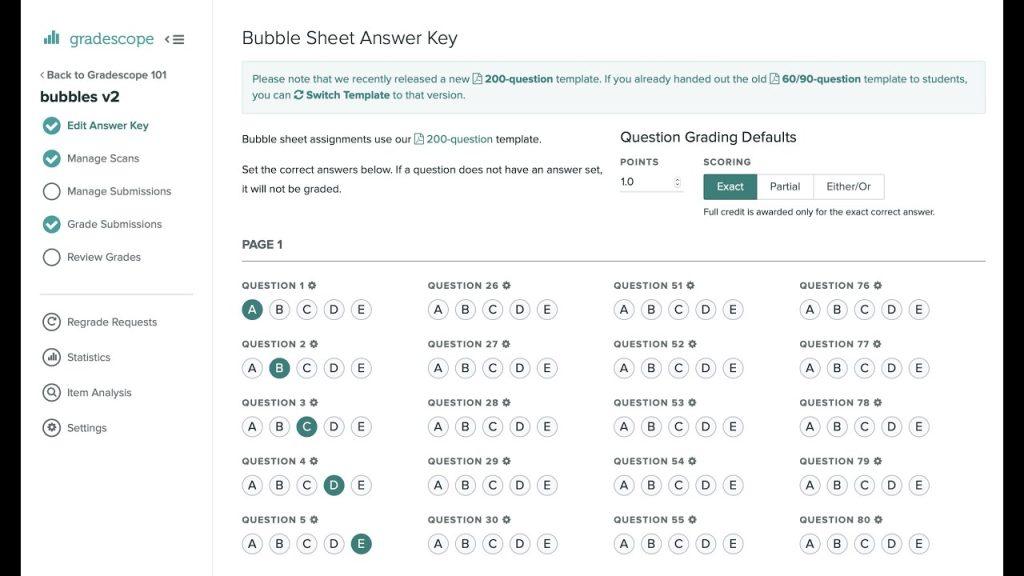 Gradescope is an AI-powered platform designed to streamline grading and assessment processes. It allows teachers to efficiently grade assignments, quizzes, and exams, offers rubric-based grading, and provides detailed analytics.
Gradescope is an AI-powered platform designed to streamline grading and assessment processes. It allows teachers to efficiently grade assignments, quizzes, and exams, offers rubric-based grading, and provides detailed analytics.
Pricing:
Gradescope offers different pricing tiers. For individual educators, the pricing starts at $50 per course per term. For institutions, the cost depends on the number of students and courses. It is advisable to contact Gradescope directly for customized pricing.
Pros:
- Efficient Grading: Gradescope’s AI can help automate the grading of assignments, saving teachers significant time.
- Detailed Analytics: Provides insights into student performance and areas where additional support may be needed.
- Rubric-Based Grading: Facilitates consistent and fair grading using customizable rubrics.
Cons:
- Cost for Larger Institutions: The cost for larger institutions can be substantial so budget considerations may be a factor.
- Learning Curve: Some educators may find adapting to a new grading system takes time.
Website: Here.
3. Edmodo
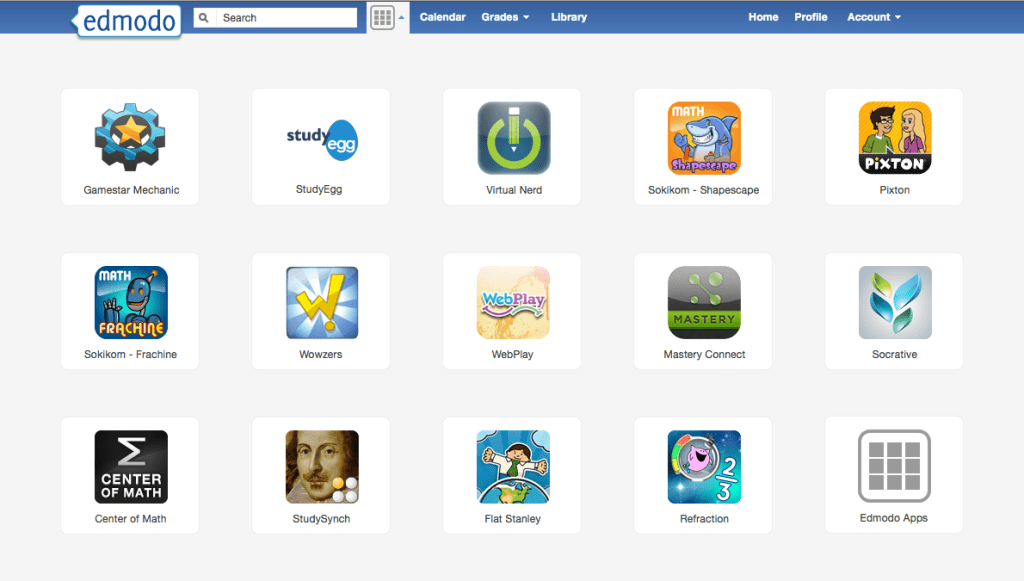 Edmodo is a learning management system that uses AI to recommend resources and content to teachers and students. It offers a virtual classroom environment where teachers can create, manage, and distribute assignments, quizzes, and learning materials.
Edmodo is a learning management system that uses AI to recommend resources and content to teachers and students. It offers a virtual classroom environment where teachers can create, manage, and distribute assignments, quizzes, and learning materials.
Pricing:
Edmodo offers a free plan with basic features. Edmodo Premium, which includes advanced features like data analytics and premium content, costs $2 per monthly user.
Pros:
- Resource Recommendations: AI-driven suggestions help teachers and students discover relevant educational resources.
- Virtual Classroom: Edmodo provides a collaborative space for creating and managing assignments, fostering communication and collaboration.
- Data Analytics: Edmodo Premium offers in-depth data analytics for tracking student performance.
Cons:
- Premium Cost: While a free version is available, access to premium features comes at a monthly cost.
- Customization Limitations: Some educators may find limitations in customization compared to other learning management systems.
Website: Here.
4. Cognii
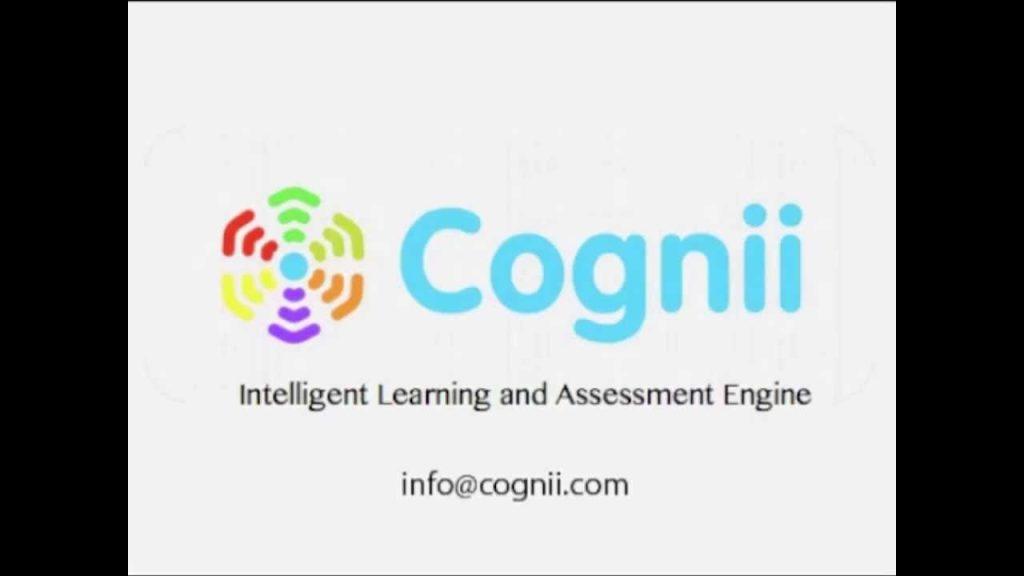 Cognii is an AI-powered virtual assistant designed to provide instant assessment and feedback on student-written responses. It specializes in natural language processing (NLP) and can evaluate short answers, essays, and open-ended questions.
Cognii is an AI-powered virtual assistant designed to provide instant assessment and feedback on student-written responses. It specializes in natural language processing (NLP) and can evaluate short answers, essays, and open-ended questions.
Pricing:
Cognii offers customized pricing based on the institution’s needs. To obtain detailed pricing information, it is recommended to contact Cognii directly.
Pros:
- Instant Feedback: Provides immediate feedback on student-written responses, helping educators pinpoint areas for improvement.
- AI-Enhanced Grading: Speeds up the grading process for written assignments.
- Scalability: Cognii can be used for small and large institutions, making it adaptable to various educational settings.
Cons:
- Pricing Complexity: Customized pricing may be a hurdle for some educators, making it difficult to anticipate costs.
- Limited Data Integration: Some educators may find limitations in integrating Cognii with their existing learning management systems.
Website: Here.
5. Quillbot, Inc.
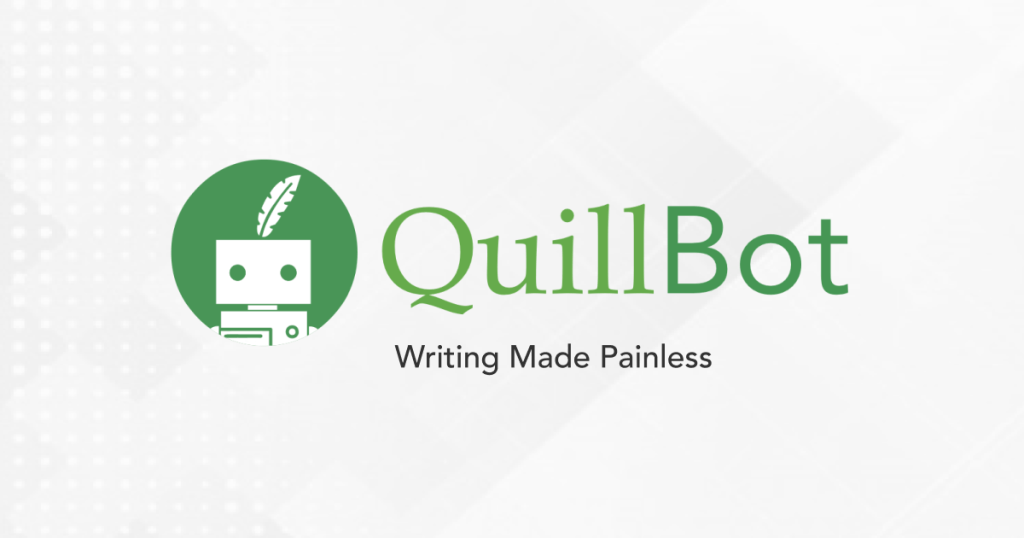 Quillbot is an AI-driven writing tool designed to assist students and teachers in improving their writing. It offers features such as grammar checking, rephrasing, and language enhancement.
Quillbot is an AI-driven writing tool designed to assist students and teachers in improving their writing. It offers features such as grammar checking, rephrasing, and language enhancement.
Pricing:
Quillbot offers both free and paid versions. Quillbot Plus, which includes additional features, costs $14.95 per month.
Pros:
- Grammar and Style Checks: Helps ensure error-free and well-structured writing.
- Language Enhancement: Suggests improvements for writing clarity and style.
- Plagiarism Detection: Assists in maintaining academic integrity.
Cons:
- Subscription Cost: The subscription cost for premium features may be a consideration for budget-conscious educators or students.
- Limited Focus: Quillbot primarily focuses on language enhancement and may not cover the broader spectrum of writing.
Website: Here.
6. SlidesAI.io
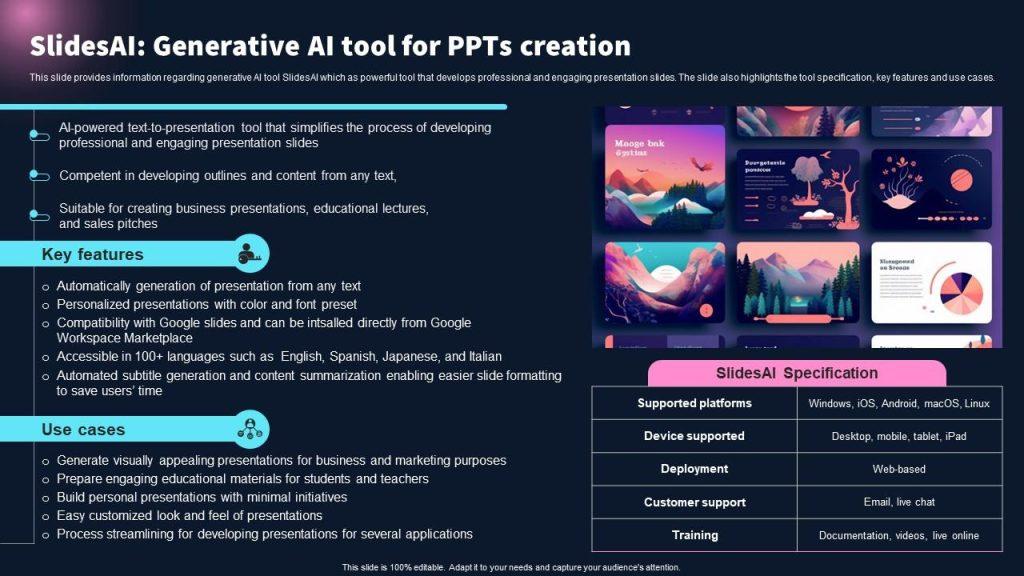 SlidesAI.io is an AI tool that enhances PowerPoint presentations by providing design suggestions, content analysis, and slide optimization. It aims to help teachers create engaging and visually appealing presentations.
SlidesAI.io is an AI tool that enhances PowerPoint presentations by providing design suggestions, content analysis, and slide optimization. It aims to help teachers create engaging and visually appealing presentations.
Pricing:
Pricing details for SlidesAI.io may vary based on specific services and features required. For the most accurate pricing information, it is recommended to visit the SlidesAI.io website.
Pros:
- Improved Presentation Design: Helps create professional and visually engaging presentations.
- Content Analysis: Provides insights into presentation content for better alignment with learning objectives.
- Time Efficiency: Streamlines the presentation design process, saving educators time.
Cons:
- Pricing Variability: The variability in pricing may make it difficult for some educators to budget for the service.
- Learning Curve: Teachers may need time to adapt to using the tool effectively.
Website: Here.
7. Education Co-Pilot
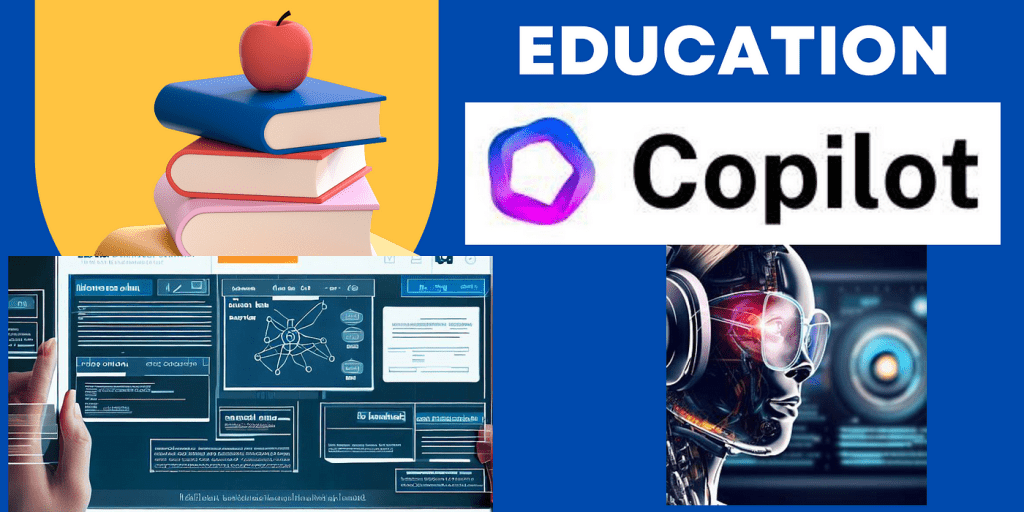 Education Co-Pilot is an AI tool designed to assist teachers in delivering personalized and effective instruction. It provides features such as adaptive learning pathways and analytics to support educators in meeting the diverse needs of their students.
Education Co-Pilot is an AI tool designed to assist teachers in delivering personalized and effective instruction. It provides features such as adaptive learning pathways and analytics to support educators in meeting the diverse needs of their students.
Pricing:
Pricing information for Education Co-Pilot is not provided on the company’s website, and it is advisable to contact them directly to obtain pricing and customization options details.
Pros:
- Personalized Learning: Supports individualized learning pathways, ensuring students receive content tailored to their needs.
- Data Analytics: Provides data-driven insights into student performance and learning trends.
- Teacher Support: Assists teachers in optimizing their instructional strategies.
Cons:
- Lack of Pricing Transparency: The absence of pricing information on the website may hinder educators’ ability to evaluate the cost-effectiveness of the tool.
- Limited Customization Information: Without detailed customization information, educators may struggle to understand how the tool can be tailored to their needs.
Website: Here.
8. Formative AI
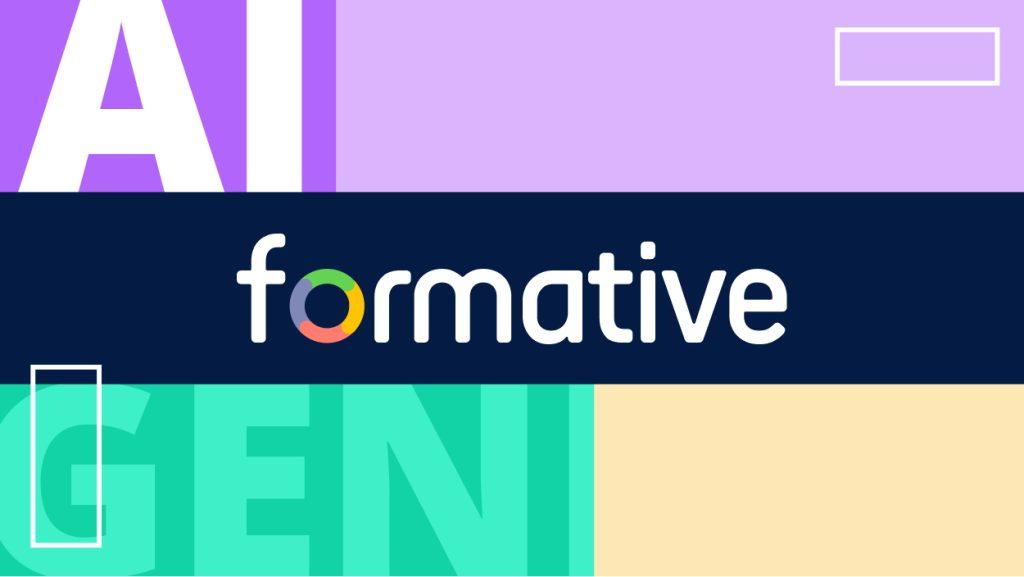 Formative AI is an AI-powered platform designed to help educators create, distribute, and grade assignments and quizzes. It provides real-time insights into student understanding, making it easier to tailor instruction to individual needs.
Formative AI is an AI-powered platform designed to help educators create, distribute, and grade assignments and quizzes. It provides real-time insights into student understanding, making it easier to tailor instruction to individual needs.
Pricing:
Formative AI offers both free and premium plans. The premium plan includes additional features and costs $125 per teacher year.
Pros:
- Real-Time Insights: Provides immediate feedback on student understanding and performance.
- Assignment Creation: Streamlines the process of creating and distributing assignments and quizzes.
- Customization: Offers features that can be customized to meet individual classroom needs.
Cons:
- Premium Cost: While a free version is available, access to premium features comes at an annual cost that may be a consideration for budget-conscious educators.
- Learning Curve: Some educators may find it takes time to become proficient in using the tool effectively.
Website: Here.
Conclusion
AI tools have the potential to revolutionize the teaching and learning experience. Each of the tools discussed here offers unique benefits but comes with challenges, including costs, learning curves, and customization limitations. It’s essential for educators to carefully evaluate their individual needs, budget constraints, and the specific requirements of their educational institutions before deciding which AI tools to incorporate into their teaching practices. As technology advances, AI tools will remain invaluable assets for educators seeking to enhance their effectiveness in the classroom and provide the best possible learning experience for their students.
People are also reading:

